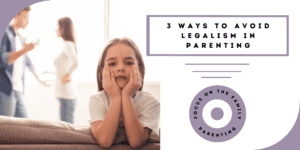Fear is an overriding emotion in nearly every teen pregnancy. “I can’t tell my parents. They’ll kill me!” “How can I finish school when I’m pregnant?” “My boyfriend will take off if I don’t have an abortion.” The adolescent with a crisis pregnancy probably sees nothing but loss on the horizon—loss of love, time, education and physical health. Fear of one or more of these losses propels most of her other responses. Remember that the average age difference between the father of the baby and the teenage mother is 6.4 years.
Denial is common, especially during the early weeks of pregnancy when the only indication might be one or more missed periods, a little fatigue, possibly some nausea or even a positive pregnancy test. The longing for things to be “the way they were” may delay acknowledging the problem and seeking appropriate help for weeks or even months.
Ambivalence about being pregnant may cause fluctuating emotions. One day the only solution may appear to be an abortion, while the next the prospect of a cuddly baby may seem appealing. Time spent with a friend’s crying newborn may jolt the emotions in yet another direction. Indecision and apparent lack of direction in such an overwhelming situation are common.
Guilt. When a pregnancy results from the violation of moral values held since childhood, an adolescent will usually feel ashamed and worthless. Her growing abdomen becomes a constant reminder of her failure. This is a time when you can come alongside your child and cement a lasting relationship with her.
Pressure to have an abortion. This may come from several directions. A teenager may be weighing what appears to be a dismal future of hardship and remorse against a quick and relatively inexpensive procedure. “No one needs to know, and I can get on with my life.” A boyfriend (who may be dealing with his own fear and guilt, along with concerns about future financial responsibilities) may exert considerable pressure to abort, even offering to pay the bill. He may also threaten to bail out of the relationship if the pregnancy continues. Some parents, worried about their daughter’s future or perhaps their own reputation in the community (or even the prospect of being responsible for the actual child-rearing), may also find abortion attractive.
The “cuddly doll” mentality. Some unmarried teenage girls see their pregnancy unrealistically as an escape from a difficult and unpleasant home situation. They may envision a baby as a snuggly companion who will require roughly the same amount of care as a new puppy, not realizing the amount of energy a newborn will take from her without giving much in return (especially during the first few weeks). Teens with this mindset need to adjust their expectations of child-rearing—not to drive them to abort, but to help them make more appropriate plans. If adoption is not chosen as a solution, some careful groundwork should be laid to prevent serious disappointment and even the mother’s abuse of the baby.



















